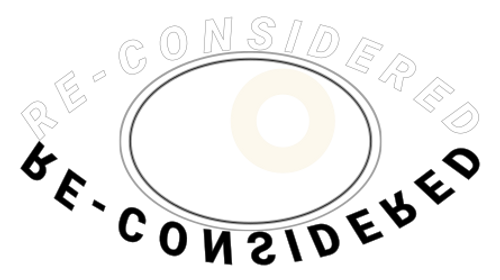“Who Does This Serve?”: The Most Underrated Thought-Provoking Question
- Apr 20
- 4 min read
Original Entry Date: 6/2/2023 by Yusuf Kemal
As a writer, healer and catalyst, I often encounter situations where people get mired in emotional battles with themselves, fight with their colleagues over insignificant matters, or simply holding grudges and thereby sowing the seeds of division and resentment, mostly due to them taking things personally, which then affects the functionings and dynamics, and success prospects, of the entire organization.
Now, we often find ourselves in situations where there is a heated argument, a wrangle, bickering, resentment, grudges, envy, jealousy, negativity, toxicity; all brewing and smouldering. And we at times can’t help it but fall for it, for it poisons our souls, and renders compassion, understanding and empathy almost impossible. Yet, we know it sows the seeds of inner division, shatters our hearts, hurts our feelings, and fosters distrust and creates an environment that brings us all collectively to our knees.
But how do we deal with and handle such situations, especially of we're an active member in the situation, or worse, at the receiving end of some feisty, scorching incensed person lashing out at us?
Enter the Rule of P.B.S.C.R.
This peculiar mnemonic stands for:
Pause
Breathe (deeply)
Smile (if appropriate in the context of the situation)
Count (to 10)
Reflect (by asking a very specific question)
In such situations, the question to pose to oneself in the 'Reflect' stage is deceptively simple and intuitive, yet remarkably eye-opening and powerful: “Who does this serve?”
Does it serve us? Or does it serve those who would dream of seeing us fighting amongst ourselves?.
It’s a deceptively simple, yet incredibly powerful, question. The more we ask it, the less we’re likely to fall for the mental entrapment of fighting and attacking each other, whatever we do to each other, finds its way into our souls, and it poisons it. For when we put each others down, we all fall. When we lift each other up, we all rise.
It helps if one pauses, takes a deep breath, smiles (if apt in the situation), counts to 10, and then reflects on the situation by asking themselves that question.
It creates a triple tiger effect ..
Firstly, initially pausing allows us to firstly be self-aware and to thus, observe our emotions, without judging or rejecting them. If we are able to see our emotions, then we can manage them, from outside the grid. Remember, if you can see the river, then you're out of the river, if you can see the mountain, they you're away from the mountain.
Secondly, counting to 10 grants us the time we need to gather our wits and thoughts and relaxes our minds, or at least temporally freezes our emotionally-charged reaction, a reaction that we may be likely to regret later.
And thirdly, the breath (and smile) are both inextricably and deeply connected to out emotional state, so they have tremendous power to alter it almost instantly and help us think clearly, wisely and rationally, so that we don't respond emotionally or rashly. In other words, they help calm us down.
Altogether, they offer us an effective, holistic and powerful method for dealing with demanding or stressful situations, especially if they are emotionally charged.
I like to always remind myself of what Ram Dass wisely reminds us of:
“Together we are all on a journey called life. We are all a little broken and a little shattered inside. Each one of us is aspiring to make it to the end. None is deprived of pain here and we have all suffered in our own ways. I think our journey is all about healing ourselves and healing each other in our own special ways. Let's just help each other put all those pieces back together and make it to the end more beautifully. Let us help each other survive.”
We should never take anyone for granted. We usually think we always can have a chance to apologise or make amends; we think we have time, but the truth is, we don't.
So next time you find yourself behaving irrationally, say a cruel word to somebody, taking things personally, wrangling and squabbling with a friend over something inconsequential, or consequential, or simply about to respond to a friend or colleague with anger, or other emotion -a response you might rue later on-, take a moment and pause, breathe, smile, count to 10, and ask yourself the following:
What if what I am about to say is the last thing I'll ever get to say to this person?
Does it suit my values and reflect who I am?
How will this affect how I am remembered?
Who does this serve?"
You'll be startled at the results. Because when one knows how to observe and manage their emotions, they can then leverage them and use them to achieve their goals, smarter and more wisely -since they would never lose, or hurt, their friends or colleagues-, and are likely to come out on top.

Comments